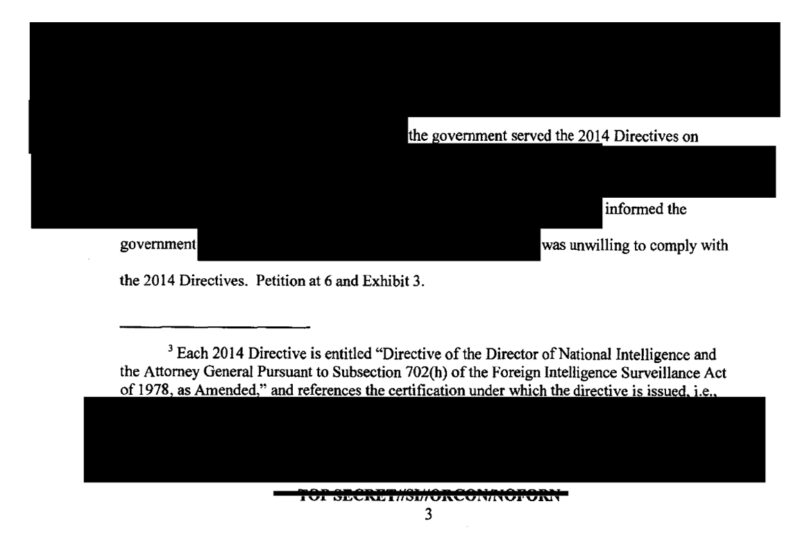This Secret Court Opinion Reveals Mystery Tech Firm Challenged NSA Surveillance Order


A previously secret document we released today shows that in 2014, an internet company challenged government surveillance demands issued under a controversial spying law — the first time we’ve ever learned of a case like this.
The document is an opinion issued by the secret Foreign Intelligence Surveillance Court. The government was forced to turn it over to the ACLU in response to a Freedom of Information Act lawsuit seeking records on spying under Section 702 of the Foreign Intelligence Surveillance Act.
Redactions in the document make it impossible to tell details like which company filed the action or exactly what kind of data the government was after. But the anonymous tech company that brought this challenge should be commended for defending its users’ privacy, and other companies must do the same by fighting for critical reforms to Section 702 in the courts and in Congress.
Under the law, service providers are required to facilitate the government’s warrantless surveillance of Americans’ international communications. If a provider seeks to challenge the government’s demand for private data or assistance acquiring that data, it must bring its challenge before the secret court.
In the nearly 10-year history of the law, this is the first time it’s been made public that a company refused to comply with the government’s directives requiring it to turn over users’ private data under Section 702.
The company’s challenge appears to have been tied to an “expansion” of Section 702 surveillance, though the details of that expanded surveillance remain redacted in the opinion. Despite the company’s arguments that the surveillance was unlawful, the court ultimately ordered the provider to comply with the directives.
Section 702 is set to expire this year, and the debate over reauthorization is already underway. This company’s challenge to the government’s warrantless spying under Section 702 underscores just how controversial this mass surveillance program really is, and why it must be significantly reformed.
Stay informed
Sign up to be the first to hear about how to take action.
By completing this form, I agree to receive occasional emails per the terms of the ACLU's privacy statement.
By completing this form, I agree to receive occasional emails per the terms of the ACLU's privacy statement.

